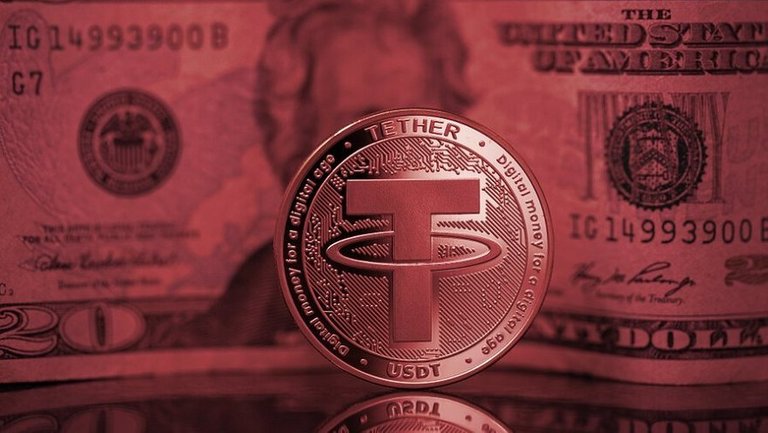Tether Will Not Freeze Tornado Cash Addresses Sanctioned By U.S. Office of Foreign Assets
The recent US government sanction on virtual currency mixer Tornado Cash raised alarm bells in the cryptocurrency industry. Tornado Cash, an Ethereum-based coin mixer, has been sanctioned by the US Treasury Department’s Specially Designated Nationals and Blocked Persons List (SDN). The sanction now bars US investors from using the chain of the coin-mixing service for unlawful purposes. The measure took effect on August 8, as stated by the US Department of Treasury. Companies employ Coin Mixers to conceal the origin of every single transaction, with Ethereum-based Tornado Cash proving extremely popular.
[Karunanidhi, V. Tether Awaits Instructions From Law Enforcement To Decide on Tornado Cash Addresses. (Accessed August 25, 2022].
On Wednesday, August 24, 2022, "U.S. dollar stablecoin issuer Tether (USDT) said that it would not freeze smart contract addresses sanctioned by the U.S. Office of Foreign Assets (OFAC) Control's Specially Designated Nationals and Blocked Persons (SDN) list for cryptocurrency trail-mixer Tornado Cash" [Sun, Z. Tether says it would not freeze sanctioned Tornado Cash addresses unless instructed by law enforcement. (Accessed August 25, 2022). In its announcement Tether explained:
So far, OFAC has not indicated that a stablecoin issuer is expected to freeze secondary market addresses that are published on OFAC’s SDN List or that are operated by persons and entities that have been sanctioned by OFAC. Further, no US law enforcement agency or regulator has made such a request despite our near daily contact with US law enforcement whose requests always provide precise details.
[Tether. Tether Holds Firm on Decision Not To Freeze Tornado Cash Addresses, Awaits Law Enforcement Instruction. (Accessed August 25, 2022)].
In expanding on this explanation, Tether said:
Unilaterally freezing secondary market addresses could be a highly disruptive and reckless move by Tether. Even if Tether recognizes suspicious activities on such an address, completing a freeze without the verified instruction of law enforcement and other government agencies might interfere with ongoing and sophisticated law enforcement investigations. In fact, in our dealings with law enforcement we are sometimes made aware of addresses potentially related to crime and are specifically instructed not to freeze the addresses without the explicit request from law enforcement as this could alert suspects of the law enforcement investigation, cause liquidations or abandonment of funds and jeopardize further connections that might have been established.
[Id].
Noting that Paxos (issuer of BUSD and USDp) and DAI have not frozen the Tornado addresses, Tether took issue with Circle stating: "We believe that, if made without instructions from US authorities, the move by USDC to blacklist Tornado Cash smart contracts was premature and might have jeopardized the work of other regulators and law enforcement agencies around the world" [Id].
All U.S. persons and entities are prohibited from interacting with the digital currency mixer's USDC and Ethereum smart contract addresses on the SDN list, subject to stiff criminal penalties for violation. However, Tether is a Hong Kong-based issuer and neither onboards U.S. persons as customers nor conducts business in the United States, although it voluntarily follows certain U.S. regulations as a part of compliance.
[Sun, supra]
So, given the foregoing "[o]ne of the least trusted stablecoin behemoths has the pro-decentralization crowd cheering [...] The crypto community is generally applauding Tether for not, as many see it, preemptively taking a knee to U.S. law enforcement [...] Tether has always dealt with swirling rumors about whether the company really has enough assets in its reserves to back its stablecoin. With its stance to hold off on freezing addresses, the company may have boosted its reputation, at least among the crypto diehards who see decentralization as a core tenet of open finance" [Fernau, O. Tether Will Not Preemptively Freeze Sanctioned Addresses. (Accessed August 25, 2022)].
Meanwhile, the wider crypto industry has been seeking clarity on what kind of actions it must take to comply with the Treasury Department sanctions. Earlier this week, Rep. Tom Emmer, R-Minn., wrote a letter to Treasury Secretary Janet Yellen requesting answers about how the department plans to enforce these sanctions, considering they focus on computer code rather than specific individuals or companies.
[Majcher, K. Tether says it's not freezing Tornado Cash addresses until government tells it to. (Accessed August 25, 2022)].
Posted Using LeoFinance Beta

